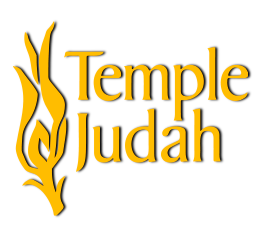Shalom All,
Typically, as we turn our calendars this month and begin the New Year, we also turn our Torah and begin a new book, the Book of Exodus. This book of Torah introduces us to our great prophet Moses, whose life and leadership takes us through the next four books of our most sacred text.
Moses, as we know, lived a long life. At the end of the Torah, Moses is buried at the age of 120. One might think that Moses’ entire life would be evenly spread out and detailed over the course of the four books of Torah in which he is the dominate character. But the truth is that the first 80 years of his life are condensed into just five chapters of the book of Exodus. The most interesting events of his life — the parting of the sea, the receiving of the tablets, the building of the tabernacle — all happen late in his life, and they are well covered in the books of the Torah which follow. But what of his early years? What kind of kid was Moses? What events shaped him during his formative years? How did he become the person he was while being raised in the palace of Pharaoh?
For these stories, we must look to the midrash. There are a number of legends, which hint at Moses’ destiny, fill in the gaps of his story, and show how God protected him. One such tale explains why the Torah tells us that Moses spoke with a lisp while, at the same time, foreshadows the events to come.
It is told that once, when Moses was in his third year, he had crawled across the dinner table to Pharaoh and taken the crown from the king’s head, and placed it on his own. He giggled and laughed as the large crown slipped over his entire head and balanced precariously on his shoulders. But no one else was as amused.
Balaam, one of Pharaoh’s advisers, spoke first, “Remember now, my lord, the dream you dreamed a few days ago, and how your servant interpreted it for you. This is a child of the Hebrews in whom is the spirit of God. Do not imagine, my lord, that being a child he did this thing without knowledge. For he is a Hebrew boy, and wisdom and understanding are with him. With wisdom has he done this, and chosen unto himself the kingdom of Egypt. He should be put to death immediately.”
But Pharaoh’s daughter, who had adopted Moses, argued on his behalf, saying, “My son is merely a child who knows not what he did.” Pharaoh then sent for all the wise men of Egypt, and the angel Gabriel came disguised as one of them. When they were asked their opinion in the matter, Gabriel spoke up, “If it please the king, let him place an onyx stone before the child, and a coal of fire, and if he stretches out his hand and grasps the onyx stone, then we shall know that the child has done with wisdom all that he has done, and we will slay him. But if he stretches out his hand and grasps the coal of fire, then shall we know that it was not with consciousness that he did the thing, and he shall live.”
So they placed the stone and the hot coal before the child, but when Moses stretched forth his hand toward the onyx stone and attempted to seize it, the angel Gabriel guided his hand away from it and placed it upon the live coal. Moses quickly seized the coal and brought it to his mouth. It burned his hand and his lips and from then on Moses spoke with a lisp. Pharaoh and his advisors, however, believed that Moses had acted without knowledge in taking the crown and his life was spared.
In this midrash, God was there, protecting Moses, even as a painful experience saved his life, and shaped his existence. May we come to understand that God is there for us too, in the events and experiences, both joyful and difficult, that shape our lives.
I hope you all have a Happy New Year, and may the year 2023 be a good and peaceful one.
Rabbi Todd

